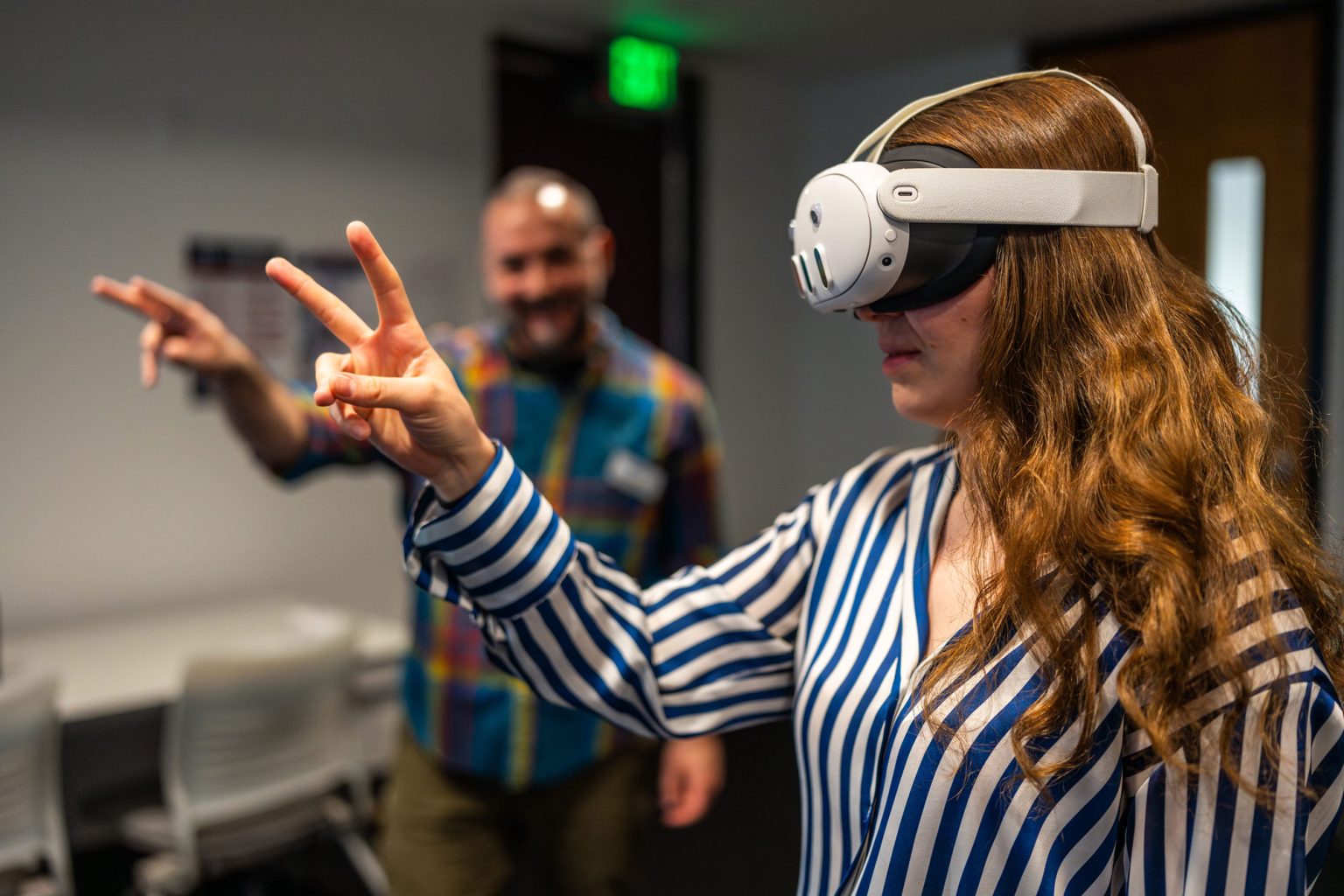Christina Sciabarra, a political science professor at Bellevue College, received a $1,000 grant to explore the impacts of climate change on native flora through 360-degree video technology. This project is part of a larger initiative funded by the National Science Foundation to create an extended reality educational network in the Pacific Northwest. Extended reality encompasses various perception-altering technologies, including virtual reality, which scientists are using to drive home the consequences of a warming world. Scientists are utilizing extended reality to study surgical techniques, mental health treatment, and the universe, while Sciabarra aims to create empathy and awareness around climate change through her immersive video project.
Bellevue College received nearly $750,000 to develop its extended reality initiative, which includes offering $1,000 microgrants to faculty members at collaborating institutions. The college’s extended reality lab, led by coordinator Drew Stone, aims to bring people together, share resources, and build community through innovative projects. In collaboration with Tasmanian immersive technology expert James Riggall, the college launched its extended reality lab in 2017 and has since been exploring the potential of virtual reality in education. Riggall’s introduction of Sciabarra to 360-degree video with a virtual reality film about a Syrian refugee camp inspired her to use extended reality in her teaching, particularly in her Climate Justice Project.
Sciabarra plans to capture footage of plants in various settings and record audio from conversations with Indigenous groups in Peru to create an immersive experience around climate change. She envisions the final video providing viewers with a bug’s eye view of plants and explaining the impact of climate change through storytelling. The project will utilize video equipment from Bellevue College and the microgrant will cover additional expenses. Sciabarra believes that immersive technology like 360-degree video will play a significant role in the future of education, providing engaging and effective material for students to learn from.
Through her project, Sciabarra hopes to raise awareness and stimulate action on climate change by immersing viewers in the world of native flora. By showcasing plants from ground level and incorporating audio clips about climate change impacts, she aims to create a powerful and emotional experience for viewers. In addition to her work on the project, Sciabarra actively engages with Indigenous communities and climate change research to inform her storytelling. Despite the financial and technical challenges of creating the immersive video, Sciabarra remains committed to using extended reality to enhance her teaching and inspire her students about climate justice.
Bellevue College’s extended reality lab has become a hub for innovative projects, with faculty members exploring the potential of virtual reality in education. By offering microgrants and collaborating with partner institutions, the lab aims to foster creativity and community among educators. Inspired by the success of previous projects and the impact of immersive technology, Bellevue College is continuing to invest in extended reality initiatives. The introduction of 360-degree video technology and the exploration of climate change impacts on native flora are just a few examples of how extended reality is being utilized to drive awareness and education in various fields.


